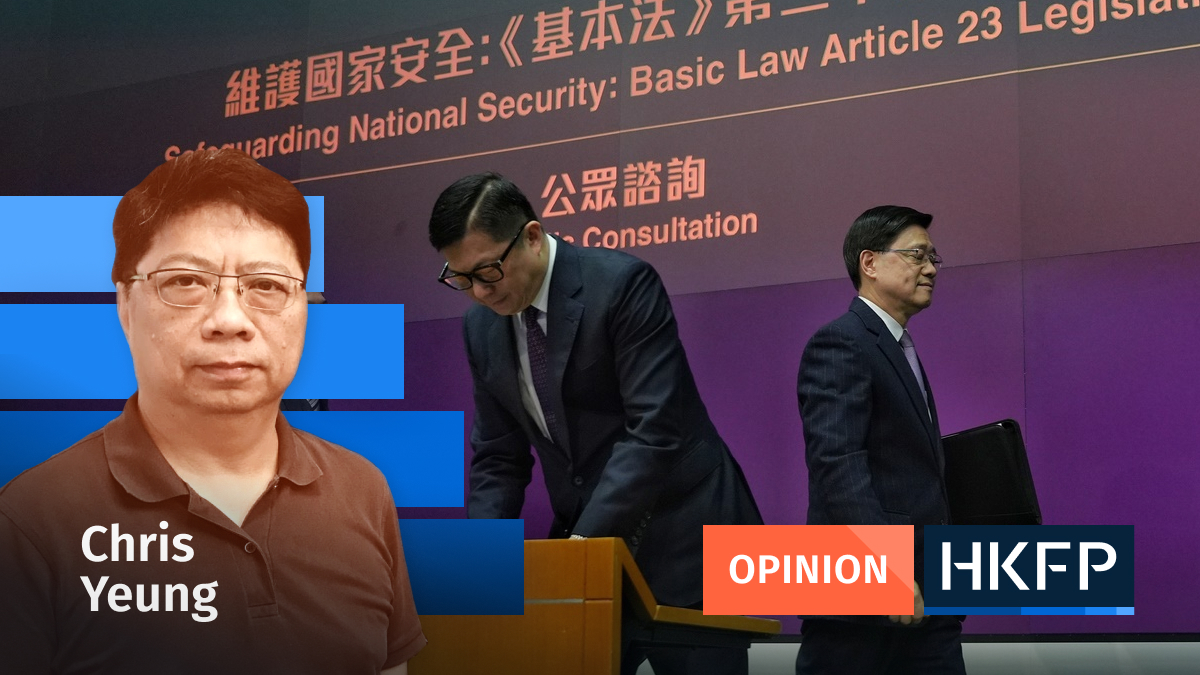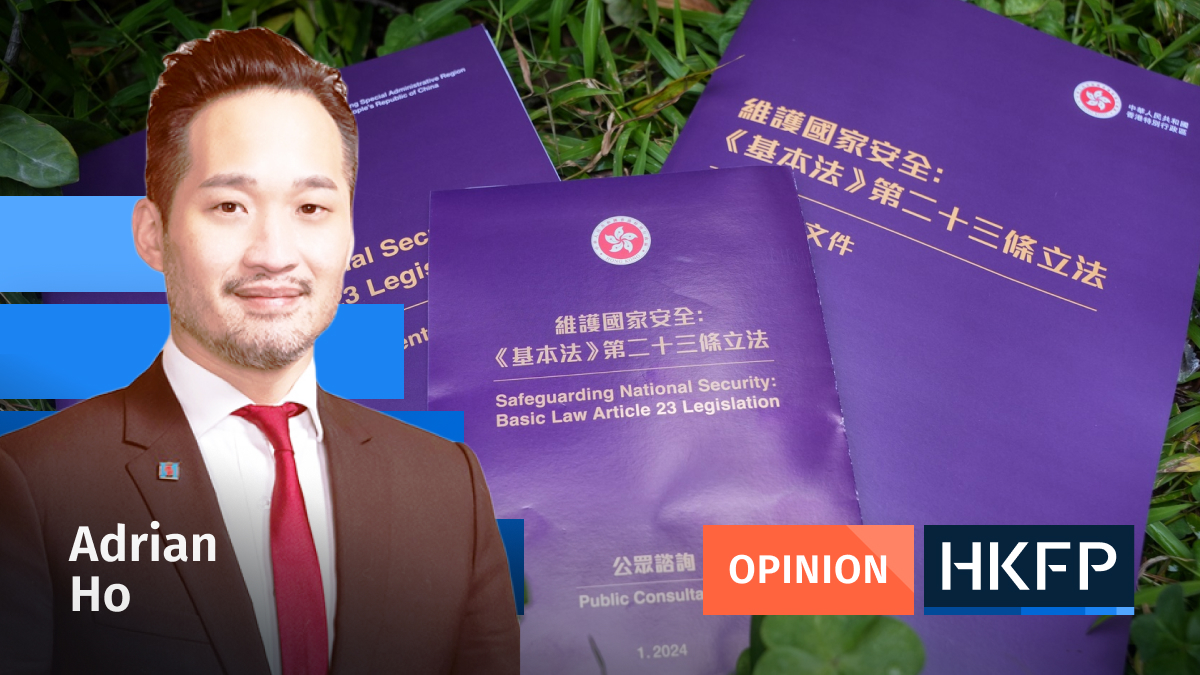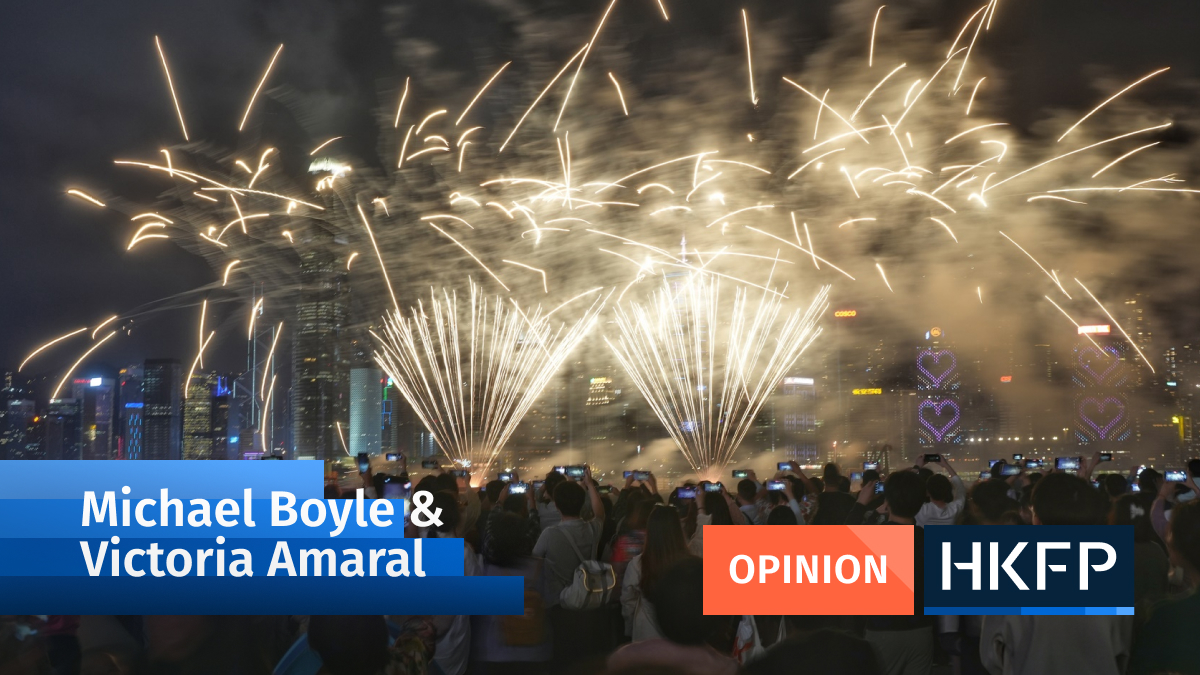John Lee, Hong Kong’s sole chief executive candidate, delivered his 44-page policy platform last Friday. Headlined “Starting a new chapter for Hong Kong together,” it contains noble underlying aspirations to guide Hong Kong “from stability to prosperity” over the next five years. The expressions “new chapter” and “together,” should be emphasised since they are the foundation of his initiative.

On Sunday, Lee will be elected as the next chief executive, having secured nominations from well over 50 per cent of the members of the Election Committee prior to campaigning for the position. His policy platform is progressive, realistic and practical – which is consistent with his method of operation and attitude – and minimises hollow promises and pipe dreams in favour of a results-oriented approach.
This policy platform was put together by public consultation and with collective wisdom. It is a collaborative platform constructed with ideas from the campaign team, Election Committee members, representatives from various sectors, and most importantly ordinary citizens of Hong Kong – truly a people’s policy platform.
In addition to social media consultations, Lee spent a significant amount of time engaging with political parties, unions and numerous community organisations, as well as digging deep to meet with many grassroots residents and groups to understand Hong Kong’s deep-rooted issues and integrate them into his agenda.
Lee and his team injected a personal touch to the campaign by exhibiting commitment, devotion, unity, and affection when listening to people and executing proposals from a diverse range of industries.
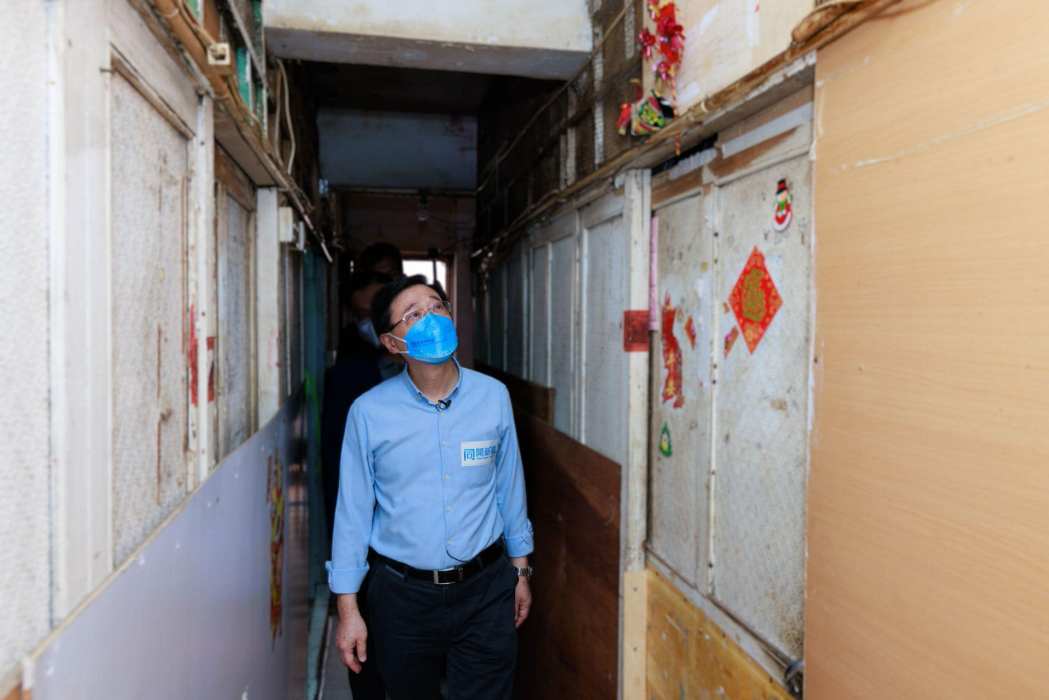
To evaluate the domestic and international implications of Lee’s policy platform, I will discuss the four fundamental concepts of his political manifesto, all of which aim to address widespread concerns of Hong Kong people.
In general terms, these principles include enhancing local governance, streamlining public housing production, increasing regional and worldwide competitiveness, and making society more compassionate towards youth, the elderly, and the destitute.
Improving local governance is rightfully the priority on Lee’s policy agenda. The governing capability of Hong Kong can be enhanced through commendable policy directives, including assertive engagement with the Legislative Council to strengthen legislative-executive ties; restructuring of governmental organisation to improve inter-bureau co-ordination and enhance efficiency; and finally improving the efficiency of government departments by adopting a results-oriented approach and formulating key performance indicators. Also mentioned is the development of a mobilisation protocol for bolstering crisis management and emergency response capabilities.
It is laudable that Lee prioritises governance efficiency in his policy agenda.
Our government has long been chastised for its lack of foresight, planning, and ability to execute; much of this is attributed to internal structural inefficiency. Government reorganisation will, without a doubt, provide optimism for the future. With the appropriate individuals in charge of each aspect of the government, efficiency will be restored, and people’s all-time low confidence in our government will be regained.

Strong governance is founded upon upholding the rule of law, which ensures domestic stability and prevents disturbances of social and public order. To that aim, Lee has stressed the enactment of local legislation to implement Article 23 of the Basic Law, which specifies that any act of secession, treason, subversion, or sedition will be prohibited by the Hong Kong government. This plus the national security law will be the greatest dynamic duo to maintain stability.
The second fundamental principle in Lee’s campaign manifesto is to streamline the procedures for public housing. There are deep-seated social and financial concerns surrounding housing in Hong Kong. Indeed, Lee acknowledged that “the issues related to housing have remained unresolved for the past two decades.” Adequate supply of affordable housing is a major source of concern among Hong Kong residents.
Lee stated that he would streamline procedures to address the housing predicament by expediting land and housing development through a variety of methods, including the use of the land resumption ordinance, increased private landowner participation, and utilising building information modelling and modular integrated construction, which would allow for faster construction of public housing units.
These are progressive and essential measures that would reduce the waiting time for people seeking public housing. Despite the fact that this is a problem that cannot be eradicated in a short period of time, the utmost effort must be taken to better people’s lives and, in turn, address a variety of other social and economic issues.
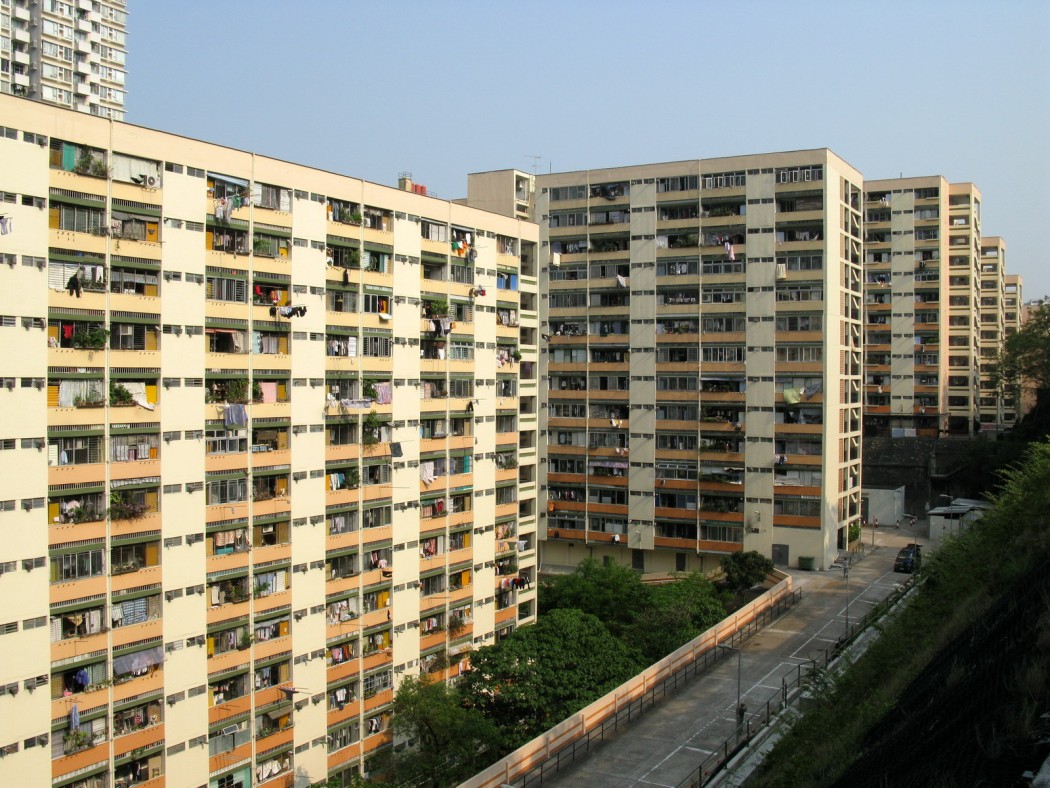
The third aspect on Lee’s policy agenda is to promote Hong Kong’s regional and international competitiveness by fostering a free, transparent, and lawful business environment that will attract foreign corporations and investment. The elevation of Hong Kong’s “open, tolerant, and pluralistic international city status” is crucial in this regard since it will enhance international confidence in Hong Kong’s financial position and, as a result, its competitiveness in the international market.
Expansion of financial connections with our motherland China, as well as the development of financial, digital, and hi-tech industries, will entice foreign talent to work and invest in these sectors, while also inspiring local youth to do so.
Lee has also emphasised the significance of driving development through innovation, utilising the opportunities offered by the Greater Bay Area, and developing Hong Kong into a metropolis capable of sustaining and generating a diverse economy.
The fourth most important premise of Lee’s policy platform is to establish a caring society, which is especially critical and necessary in the aftermath of the 2019 political violence, in which the youth were prominently implicated.
Their grievances and frustrations could be alleviated by addressing the core reasons of the protests, engaging the disgruntled youth by working toward their vocational and professional development and implementing schemes to prevent intergenerational poverty among them. The manifesto also includes reforms in education to assist students to develop a sense of identity and national awareness.
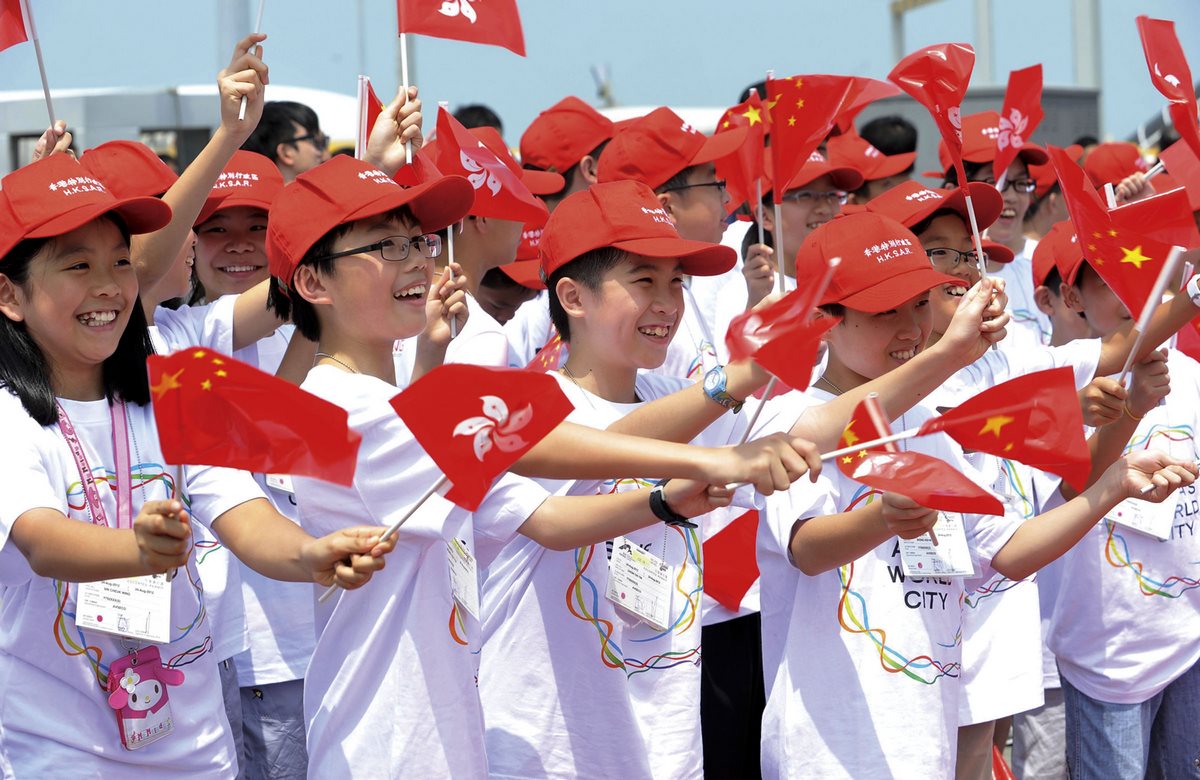
To conclude, the policy platform proposed by Lee appears to be progressive, with an appointed bureaucracy in charge of conducting the four fundamental principles mentioned. Even if it is unclear how they will be incorporated into the policy initiatives, the fact that the central government of mainland China and Hong Kong have finally reached an agreement on Hong Kong’s aforementioned pressing issues after years of extensive debates and deliberation is a positive development.
The four major principles are intertwined as, in my opinion, the degree of how successfully they are implemented will determine Hong Kong’s development and advancement over the next five years.
Support HKFP | Policies & Ethics | Error/typo? | Contact Us | Newsletter | Transparency & Annual Report | Apps
| HKFP is an impartial platform & does not necessarily share the views of opinion writers or advertisers. HKFP presents a diversity of views & regularly invites figures across the political spectrum to write for us. Press freedom is guaranteed under the Basic Law, security law, Bill of Rights and Chinese constitution. Opinion pieces aim to point out errors or defects in the government, law or policies, or aim to suggest ideas or alterations via legal means without an intention of hatred, discontent or hostility against the authorities or other communities. |
Help safeguard press freedom & keep HKFP free for all readers by supporting our team

More HKFP OPINION:
HKFP has an impartial stance, transparent funding, and balanced coverage guided by an Ethics Code and Corrections Policy.
Support press freedom & help us surpass 1,000 monthly Patrons: 100% independent, governed by an ethics code & not-for-profit.





